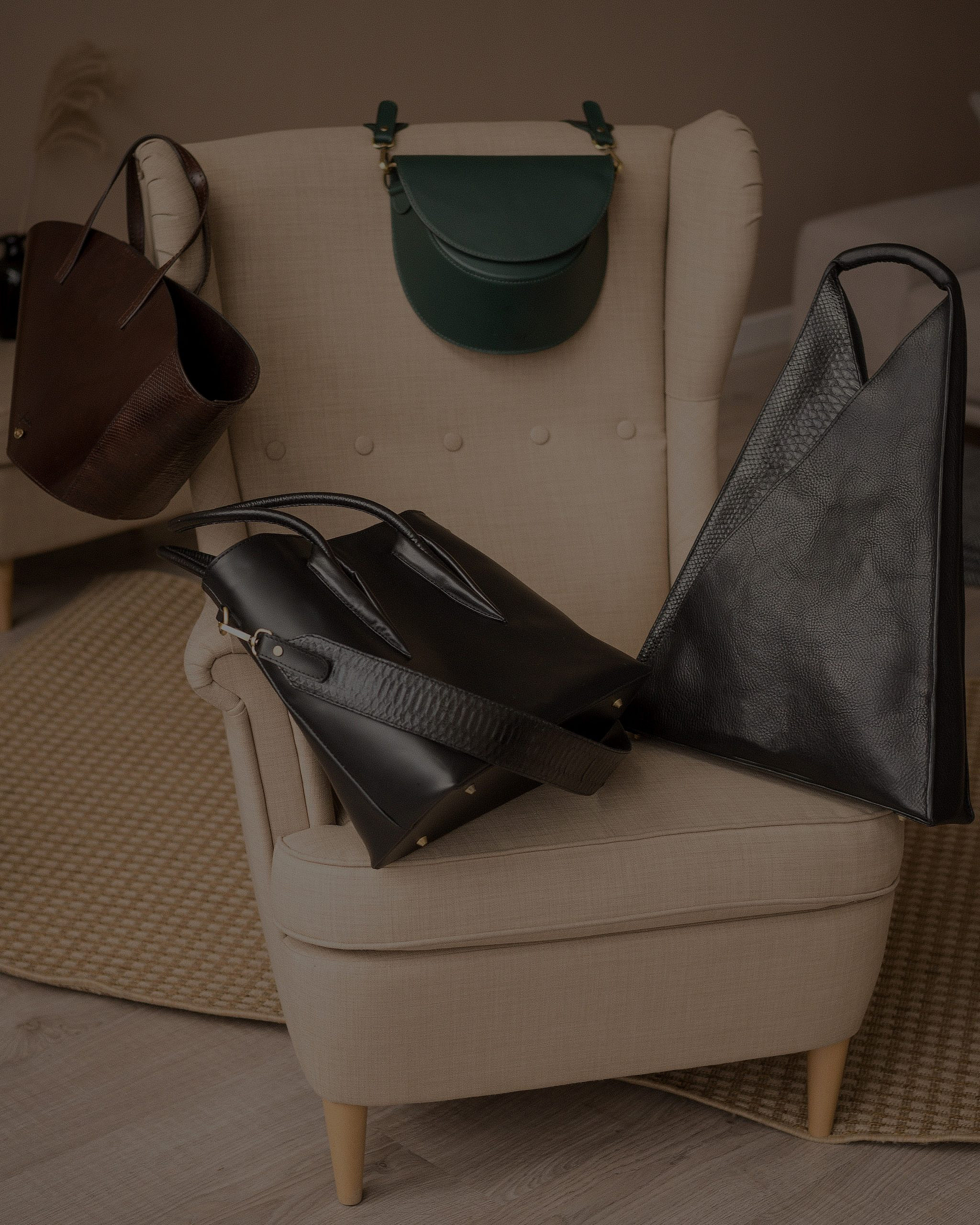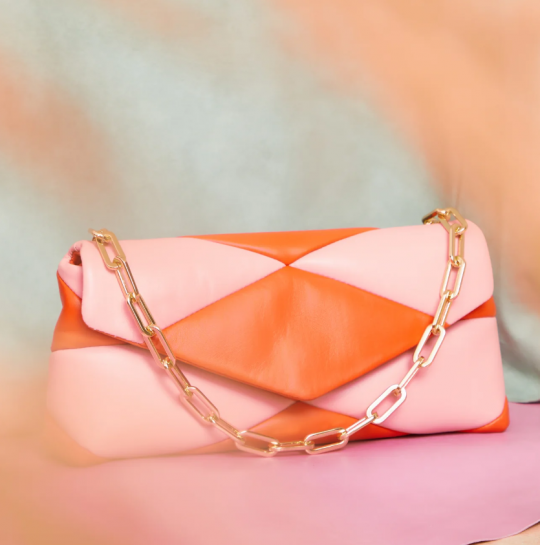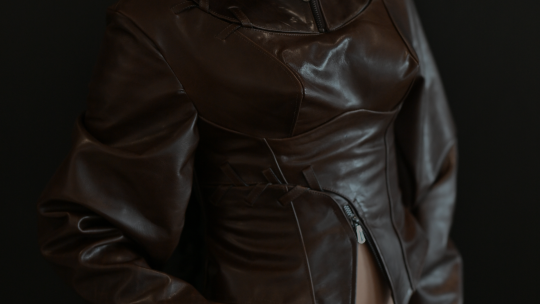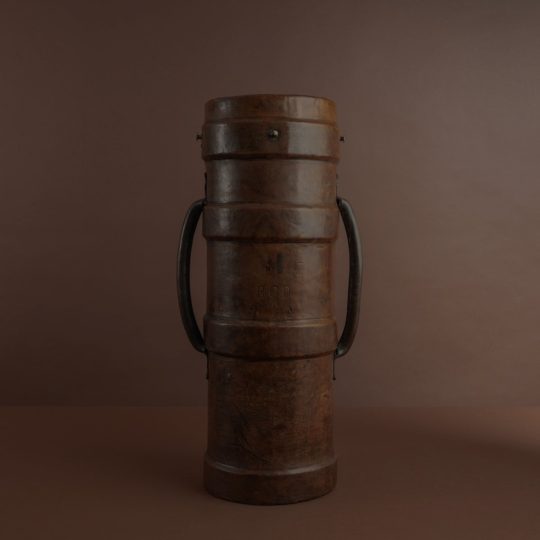By Fiona Ward
Having previously worked for high fashion houses such as Chloé, Balenciaga and Paco Rabanne, it was actually the unsettling image of piled-up leather offcuts left unused by big name brands that inspired Paris-based designer Bea Recoder to launch Reco.
She has said of her idea, which came about during the 2020 coronavirus crisis: “After visiting many factories and tanneries during the past years working in the fashion industry, I’ve always been surprised by the amount of leather leftovers remaining idle in their warehouses. I’ve always thought there was huge potential in it.”
And so, during a “period of retreat” during lockdown, Bea brought Reco to life – committing to only using surplus leather to create her geometric handbags. Since her materials only came in small batches, she developed a patchwork technique (or ‘assemblage’) to create soft, shapely designs, made in limited-edition runs depending on how much of each colour was available.
The brand’s commitment to only using deadstock leathers – from Leather Working Group-approved Italian and Spanish tanneries, no less – is evident in its stock levels, with some bags only being produced in batches of just 10 to 15. Founder Bea often shares her process of sourcing leathers on the Reco Instagram, for full transparency.
“Deadstock leathers are leathers that have already been produced but remain idle in warehouses because brands have decided not to use it due to lack of sales and overproduction, wrong colour or last minute changes of design,” she tells her followers.
“To get the most out of the leather, I’m inspired by the technique of patchwork,” she adds. “With this assembling system, the leather is cut in small pieces, which allows us to use most of it and reduce material waste. We collect all the remaining pieces to use for our tags and future projects.”
Further posts show the shavings of leather offcuts, however minuscule, that are saved for other uses. “We don’t waste anything,” Bea insists.
Since its launch in 2020, Reco has maintained its slow fashion ethos by introducing just four core styles – the quilted Didi (now also available in a mini version), the Piti patchwork shoulder bag, the Cubo crossbody and the Rombo clutch bag. By way of growth, each bag is available in a number of shades, from neutral to bold – all depending on the offcuts that are available, of course.
With a mid-luxury price point and a unique production process, Reco has somehow managed to combine exclusivity, sustainability and accessibility within its business model. “If I don’t find the same leather, I can never produce the same bag again, so this is what makes it special,” Bea previously told British Vogue.
“I really want to show it’s possible to have a healthy business while using deadstock, and sticking to limited-edition pieces and small quantities. I believe it’s possible.”
Having secured top name stockists such as Browns, Galeries Lafayette and Farfetch, it looks like Reco is already proving that slow fashion can still mean big business.
Click here to view the Reco website.









